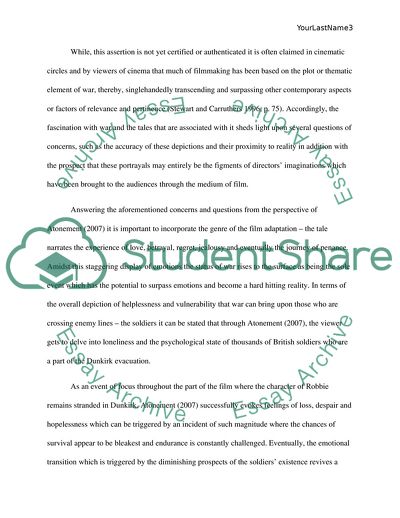Cite this document
(The Point of View of War in Atonement Movie Review, n.d.)
The Point of View of War in Atonement Movie Review. https://studentshare.org/visual-arts-film-studies/1823302-the-point-of-view-of-war-in-atonement
The Point of View of War in Atonement Movie Review. https://studentshare.org/visual-arts-film-studies/1823302-the-point-of-view-of-war-in-atonement
(The Point of View of War in Atonement Movie Review)
The Point of View of War in Atonement Movie Review. https://studentshare.org/visual-arts-film-studies/1823302-the-point-of-view-of-war-in-atonement.
The Point of View of War in Atonement Movie Review. https://studentshare.org/visual-arts-film-studies/1823302-the-point-of-view-of-war-in-atonement.
“The Point of View of War in Atonement Movie Review”. https://studentshare.org/visual-arts-film-studies/1823302-the-point-of-view-of-war-in-atonement.


